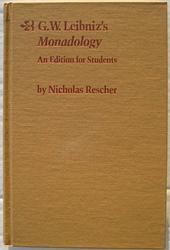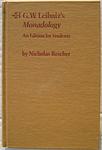Works of Gottfried Wilhelm Leibniz by Gottfried Wilhelm Leibniz
This book is a comprehensive collection of the philosophical, scientific, and mathematical works of a renowned 17th-century polymath. It includes his groundbreaking ideas in the fields of calculus, metaphysics, logic, and theology, as well as his correspondence with other notable intellectuals of his time. The compilation provides an in-depth look into his innovative concepts like the principle of sufficient reason, pre-established harmony, and monadology, offering a profound understanding of his significant contributions to the Age of Enlightenment.
The 7526th greatest book of all time
Ranking Details:
Our ranking system awards points to books based on their appearance and position on curated lists. Here's how it works:
Unranked Lists: For lists without specific rankings, each book receives points equivalent to the list's weight. This approach recognizes the book's inclusion on prestigious lists.
Ranked Lists: Books on ranked lists receive points in two ways:
- Base Points: Initially, every book is awarded points equal to the list's weight, acknowledging its significance.
- Bonus Points: Additionally, books earn bonus points based on their ranking. The total bonus pool, equal to 100% of the list's weight, is distributed among the books, with higher-ranked books receiving more points.
Exponential Distribution: The distribution of bonus points follows an exponential model. This means the top-ranked book (#1) receives significantly more bonus points than those further down the list (e.g., #100). Our algorithm ensures that higher placements are rewarded more generously, reflecting the achievement of a top rank on any given list.
This scoring system ensures that each book's ranking reflects both its presence on multiple lists and its positions within those lists, providing a comprehensive measure of its acclaim and popularity.
Total Points: 45
Since this book was first published in 1700, there is a penalty of 0%. The age adjusted score is 45.0.
This is to prevent newer books from reaching super high on the ranked list of the greatest books of all time. The greatest books should also stand the test of time.
- score: 45 -- The 100 Most Influential Books Ever Written (Weight: 45)

